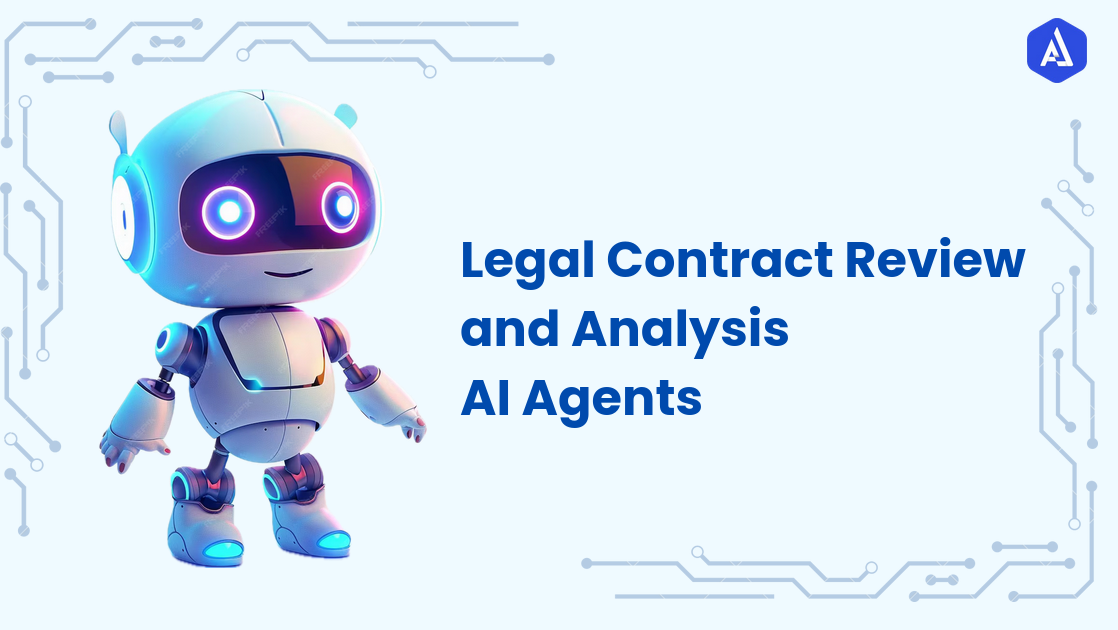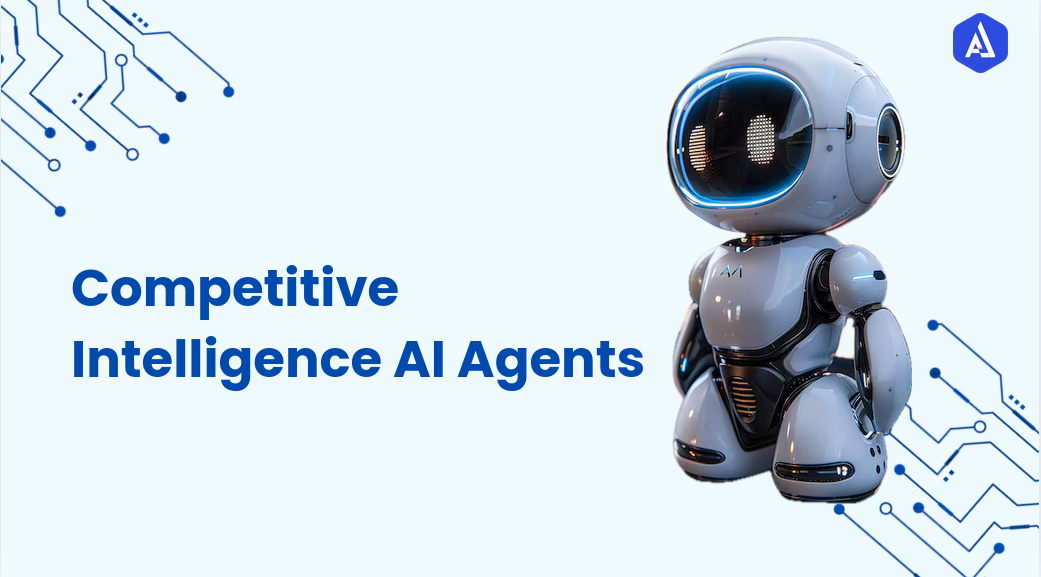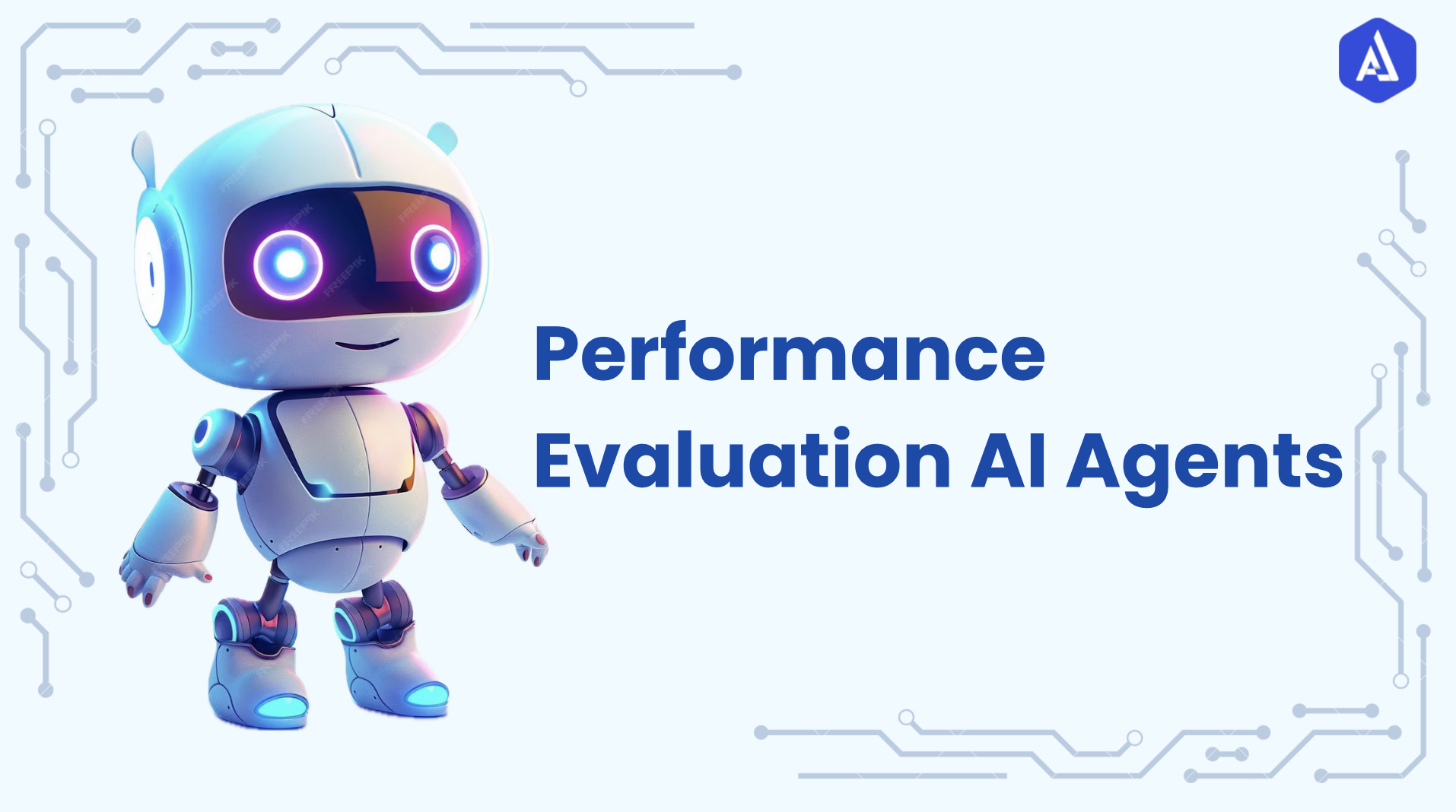Introduction
Artificial intelligence (AI) agents are rapidly gaining traction across various industries, with one of the most notable areas of impact being the accounting field. These intelligent systems are first automating traditional business processes, significantly enhancing efficiency and accuracy in accounting tasks. Secondly, they offer expanded services by leveraging financial data to provide deeper insights and enhance decision-making capabilities.
AI in accounting is transforming the role of accountants by automating routine tasks such as data entry, transaction processing, and financial reporting. This allows accounting professionals to focus more on strategic activities, such as financial analysis and business planning, essential for achieving broader organizational goals. As AI technologies continue to evolve, they hold the potential to revolutionize the accounting profession further, enabling businesses to make more informed decisions and ultimately drive growth and success.
This article explores the advantages and applications of AI agents in accounting, highlighting how these systems are reshaping the industry and improving overall business performance.
About the Process
-
Data Entry Automation: AI agents can automate the input of financial data, eliminating the need for manual data entry. This reduces the risk of human error and speeds up the process.
-
Sorting and Matching: AI systems can efficiently sort and match financial transactions, invoices, receipts, and other documents, ensuring proper categorization and reducing the time spent on reconciliation.
-
Journal Entries: AI agents can automatically generate journal entries based on predefined rules and patterns, streamlining the posting of financial transactions to the correct accounts.
-
Financial Reporting: AI tools can prepare financial reports automatically, pulling data from various systems and ensuring that the reports are accurate and up to date.
-
Tax Computations: AI can assist in calculating taxes, ensuring compliance with tax laws and regulations, and automatically applying tax rules to the financial data.
-
Audit Preparation: AI can help in the audit process by organizing and preparing necessary documentation, identifying discrepancies, and ensuring transparency.
-
Regulation Adjudication: AI agents can automatically check transactions for compliance with financial regulations, helping to reduce errors and ensuring that all financial activities adhere to relevant laws.
-
Operational Efficiency: By automating repetitive tasks, AI agents free up time for accountants, allowing them to focus on higher-value strategic activities, such as financial analysis, planning, and decision-making.
-
Improved Data Accuracy: AI systems ensure consistent and accurate handling of financial data, minimizing the likelihood of errors and improving overall data quality.
-
Faster Closing of Books: AI accelerates the process of closing the books at the end of each period, reducing the time required for monthly, quarterly, or year-end closing, tax filing, and audit preparation.
Talk about the Agent
Artificial Intelligence (AI) agents in accounting are sophisticated machine learning tools engineered to streamline financial operations, enhance accuracy, and provide actionable insights into an organization's financial health. These agents are designed to automate and optimize various accounting tasks, significantly improving the efficiency and effectiveness of accounting processes. By leveraging vast amounts of data, AI agents enable accountants to move beyond routine tasks and focus on more strategic decision-making. Here's a detailed overview of their capabilities, design, and integration into existing systems.
Capabilities of AI Agents in Accounting
AI agents in accounting are equipped with several advanced capabilities, each designed to improve different aspects of financial management. Some of their core functions include:
-
Data Ingestion: AI agents can ingest large volumes of financial data from various sources, such as bank statements, invoices, receipts, and transactional data. This data is processed in real-time, ensuring that all relevant financial information is quickly captured and made available for analysis.
-
Data Categorization: Once data is ingested, AI agents can categorize it into appropriate accounting categories (e.g., assets, liabilities, revenue, expenses). This is typically done through machine learning algorithms that learn from historical data and accounting rules, reducing manual input and ensuring consistency.
-
Data Analytics and Control: AI agents are designed to analyze financial data and identify trends, patterns, and potential anomalies. They can cross-check records for accuracy, ensure compliance with regulations, and flag inconsistencies or errors, thereby acting as an automated internal control system that enhances data reliability.
-
Data Estimation: Based on historical data, AI agents can estimate future financial trends, such as projected revenues, expenses, or cash flows. These predictive analytics are valuable for budgeting, forecasting, and long-term financial planning.
-
Data Evaluation and Financial Prediction: AI agents use sophisticated algorithms to evaluate an organization's financial performance and predict outcomes for future financial periods. By analyzing past transactions and trends, AI can forecast potential risks, opportunities, and the likely financial standing of the organization for upcoming periods.
Design of AI Agents in Accounting
The design of AI agents is rooted in machine learning and advanced algorithms, which allow them to continuously improve their accuracy and efficiency over time. Key aspects of their design include:
-
Learning Algorithms: AI agents are typically built using machine learning (ML) algorithms that enable them to learn from past data and experiences. These algorithms can identify patterns, detect anomalies, and adapt to new financial scenarios, improving their decision-making capabilities as they are exposed to more data.
-
Natural Language Processing (NLP): Some AI agents are also equipped with natural language processing (NLP) capabilities, which allow them to interpret unstructured financial data, such as emails, contracts, or transaction notes. This enables AI to automate data extraction from a broader range of sources.
-
Integration with Existing Financial Systems: AI agents are designed to seamlessly integrate with widely-used financial software programs such as QuickBooks, SAP, and Oracle. They can work alongside these systems to extract financial data, perform analysis, and update records in real-time without disrupting existing workflows. The integration ensures that AI agents can leverage the full spectrum of data available within the organization’s existing infrastructure.
-
Real-Time Processing: One of the key design features of AI agents is their ability to process data in real time. This capability allows accountants to receive instant feedback on financial performance, enabling faster decision-making and more efficient handling of financial operations.
-
Scalability and Flexibility: AI agents are designed to be scalable, meaning they can handle increasing volumes of data as the organization grows. They are also flexible and capable of being customized to meet the specific needs of different organizations and accounting practices.
How AI Agents Integrate with the Accounting Process
AI agents are not standalone tools but are integrated into existing financial systems to enhance the overall accounting workflow. Their integration into the process can be broken down into the following steps:
-
Data Collection and Ingestion: AI agents begin by collecting data from multiple sources, such as bank feeds, invoices, and financial transactions from integrated accounting platforms (e.g., QuickBooks, SAP, or Oracle). The AI agent continuously pulls this data into the system without manual input, ensuring it is up-to-date.
-
Data Categorization and Classification: The AI agent processes the ingested data and classifies it according to predefined categories. For example, it can categorize expenses, revenue, accounts payable, and accounts receivable. This is done with minimal human intervention, based on the system’s understanding of past entries and accounting practices.
-
Financial Analysis and Monitoring: Once the data is categorized, the AI agent analyzes it to detect patterns, trends, and any potential discrepancies. It may also monitor for irregularities that could indicate fraud, errors, or inefficiencies. This is where the AI’s ability to enhance financial control comes into play, by providing deeper insights and automatically flagging any issues that require attention.
-
Reporting and Forecasting: Based on the analysis, AI agents can generate reports in real time, such as balance sheets, income statements, or cash flow statements. Additionally, they can produce forecasts, predicting future financial outcomes such as potential revenue growth, cash flow, or upcoming liabilities.
-
Optimization and Process Improvement: As the AI agent works over time, it learns from past experiences, continually improving the processes it manages. For example, it can identify which accounting tasks are most time-consuming or error-prone and suggest improvements or adjustments to optimize workflows. Over time, the agent becomes more adept at replicating and improving processes, driving further efficiency gains for the organization.
-
Strategic Decision Support: With historical and real-time data, AI agents can provide predictive analytics to support strategic financial decisions. They can offer insights on potential investments, cost-saving opportunities, and risk management. This allows accountants and business leaders to focus on higher-level decisions that align with long-term business goals.
Benefits of AI Integration in Accounting
-
Enhanced Accuracy and Efficiency: By automating routine tasks, AI reduces human error and speeds up financial processes.
-
Improved Decision-Making: AI provides real-time insights and predictive analytics, empowering accountants to make more informed decisions.
-
Cost Savings: AI agents reduce the time and labour required for manual processes, leading to significant cost savings.
-
Scalability: As organizations grow, AI agents can scale their operations to handle increasing data volumes without compromising performance.
-
Ongoing Optimization: AI agents continuously learn and adapt, optimizing accounting processes over time to increase effectiveness and reduce inefficiencies.
Benefits and Values
Integrating AI agents into accounting processes delivers several distinct advantages:
-
Increased Efficiency: AI agents can automate mundane tasks such as data entry, invoice categorization, and report generation, enabling accountants to focus on higher-level strategic activities.
-
Cost Reduction: By automating manual tasks, businesses reduce operational costs and free up resources to focus on more value-added activities. Moreover, the reduction in errors can further cut costs associated with fixing mistakes.
-
Improved Accuracy: AI's ability to process and categorize financial data reduces the risk of human error, ensuring that financial reports are accurate and compliant with industry standards.
-
Enhanced Forecasting: AI agents can analyze historical data, economic trends, and market conditions to generate highly accurate financial forecasts, helping businesses plan for the future more effectively.
-
Real-Time Insights: With AI agents continuously analyzing data, businesses can receive real-time financial insights, enabling them to make more informed and timely decisions.
-
Scalability: As businesses grow, AI agents can scale to handle increasing volumes of transactions without requiring additional human resources. This scalability ensures businesses can continue to operate efficiently even as their financial operations become more complex.
Use Cases
AI agents can be applied to various accounting functions across industries, improving efficiency, accuracy, and strategic decision-making. Some common use cases include:
-
Financial Close Processes: AL agents can check and verify account balances, identify differences in account balances, and make recommendations for correction without personal interference, thereby speeding up and making the financial close processes more accurate.
-
Tax Preparation: AI agents handle tax computation and check tax deductions for organizations. They also update people with new laws come tax season.
-
Expense Management: Recipients of the messages automatically organize expenses from receipts, invoices, and bank statements and use machine learning algorithms to categorize expenses over time.
-
Audit Preparation: Some of the suburban efficiency that AI presents in audit work consists in classification of the financial documents, correspondent analysis, and even the issued preliminary Audit reports. This relieves the auditors of some routine work and enables them to work on the next level in terms of totality and risk.
-
Financial Forecasting: Using algorithms in deciding the next business strategy depending on data gathered from the past events, market trends, among others, AI agents assist business people with real-time financial forecasts.
Considerations
Implementing AI agents in accounting requires careful planning and addressing several technical and operational considerations to ensure successful integration and performance:
-
Data Integration: AI agents need also be compatible with the currently used accounting software and other related software such as the company’s ERP software. If not many integrated, such information can end up being fragmented hence costly to deal with.
-
Data Quality: AI will only be as good as the input provided to it / in other words, AI best performance will only be equivalent to the value of the data analyzed. Companies have to keep their numbers unadulterated to prevent any mistakes from creeping in when reporting or analysing data. Data cleaning and preparation involve being highly useful during the adoption of artificial intelligence.
-
Security: Since financial information is usually considered to be highly personal, extra precautions have to be taken. Some are for the security of financial information which includes encryption, and access control and audit trails.
-
Compliance: Agent to be compliant with the industry standards and regulations like GDPR, SOX or any specific tax regulation. These regulations are ever-changing, and AI agents must update their systems frequently to comply with new regulations.
-
Change Management: Hosting requires enough staff training, clear deployment of roles and responsibilities, and effective change management to ensure staff acceptance of the change. People dislike change, and therefore, there is always resistance. Communication is very important.
Prioritizing these dimensions will guarantee that AI agents will be easily incorporated into the business and will not create more problems than it solves for the organization in maintaining and increasing efficiency to an appropriate level.
Talk about the Future
AI advancements will significantly shape the future of accounting. As AI agents evolve, their capabilities will expand to include more sophisticated features and enhance their value proposition in accounting processes:
-
Greater Automation: Some of the everyday accounting chores like consolidation, preparation of accounts, inputting data, and verifying transactions will be completely executed by artificial intelligence agents and engaging human involvement in this process will be very limited or nearly insignificant.
-
Smarter Forecasting: AI agents will incorporate additional, far more complicated data inputs, including market trends, consumer behaviour and global economic conditions, to provide even more precise financial predictions and valuable business intelligence.
-
Natural Language Processing (NLP): In the future, great emphasis will be placed on NLP for creating detailed financial statements and analyses in readily understandable terms, which will be helpful for all the entities of a business.
-
Enhanced Decision-Making: AI will advance from merely offering cost-benefit analyses to give errant signals on matters concerning business prospects, threats, and expansion strategies at real-time. This will make AI agents as important decision makers regarding financial planning as anyone else.
-
Real-Time Financial Management: Expert agents will analyze financial data on an ongoing and real-time basis because of the continuous streaming of data, which will allow businesses to approach and make instant decisions based on continuously collected data.
Over time, as these advancements progress, those companies that leverage AI will begin to realize a stronger position than their counterparts who do not by leveraging data that could not be leveraged in the past. Taking the unprecedented advances in AI further, we can make a case that the future of accounting will transcend automation into AI as a source of strategic trends analysis, forecasting capability, as well as continuous, real-time financial.


